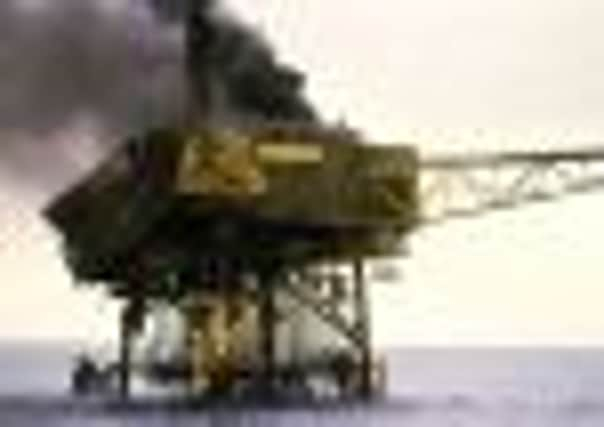HSE plans to scrap offshore division attacked


This year marks the 25th anniversary of the Piper Alpha disaster - the world’s worst offshore catastrophe which claimed the lives of 167 oilworkers on 6 July, 1988.
Lord Cullen’s landmark inquiry into the disaster led to the establishment of the HSE as the new regulatory authority for the industry through its new Offshore Safety Division.
Advertisement
Hide AdAdvertisement
Hide AdHis groundbreaking report also swept aside the old prescriptive regime which had governed North Sea oil and transformed the safety culture offshore towards a goal-setting regime, vested in the hands of the oil companies.
HSE’s Offshore Division has been responsible, since its creation , for regulating the risks to health and safety arising from work activity in the offshore oil and gas industry on the UK Continental Shelf (UKCS)
But it has now been revealed that, as part of a “restructuring exercise” within the Health and Safety Executive, the OSD is to become part of a new “Energy Division” within the safety watchdog.
Bob Crow, the general secretary of the RMT union, condemned the decision.
He declared: “In this year of all years, when we will commemorate the 25th anniversary of the Piper Alpha disaster, the changes being announced by the HSE fly in the face of what Lord Cullen recommended. We fail to see how these changes will improve the efficiency of the regulator in a sector where new technologies are being developed and where there is significant investment forecast for the next decade and more.
“In a goal setting industry where the objective is ‘continuous improvement’ there has to be a robust regulatory regime and a regulator able to apply strong influence in achieving that objective. Diluting that effort by stretching an already under resourced department cannot hope to deliver the aims of Lord Cullen all those years ago. Remember it was the ‘Energy Department’ that looked after health and safety when 167 souls lost their lives on Piper in 1988.”
Safety
An RMT spokesman said: “Ever since the findings of Lord Cullen’s inquiry into the Piper Alpha disaster there has been a distinct division of the HSE devoted to the major hazard offshore oil and gas industry. The Offshore Safety Division has had a strong influence in shaping and improving the safety performance of this industry, and given recent announcements of major investment and development in the sector, it could reasonably be expected OSD would continue in that role.”
He claimed: “This move has surprised not only the trade unions, but the industry itself.”
A spokesman for HSE defended the decision.
Advertisement
Hide AdAdvertisement
Hide AdHe said: “Like any public body HSE undertakes periodic reviews of its structure, to ensure it is efficient and responsive to developments in the industries it regulates. For example, emerging energy technologies such as carbon capture and storage and underground coal gasification are on the horizon. These require the bringing together of a range of skills from within HSE. Brigading these skills in the same division will enable them to be deployed to best effect.”
The spokesman continued: “Clearly, HSE doesn’t stand still and it is now 22 years since Offshore Division became part of the organisation. HSE still exists as a single regulatory body to enforce the occupational health and safety in the offshore oil and gas industry, as envisaged by Lord Cullen.
“We’re speaking to industry and trade unions to reassure them that it is business as usual from an external point of view.”
North Sea industry leaders also voiced their concern at the restructuring decision.
Robert Paterson, the health and safety director of Oil & Gas UK, the pan industry trade body, said: “There has been both surprise and concern expressed widely across the industry about the organisational changes planned for HSE Offshore Division. Oil & Gas UK is exploring how the practicalities of this HSE restructuring could affect the offshore oil and gas industry.”
He added: “It is a priority for the industry that there must remain sound and appropriate regulation that is engaged locally at all levels.”
Lord Cullen report
The establishment of a dedicated offshore safety division was one of 106 recommendations made by Lord Cullen.
He stated in his landmark report: “There should be a single regulatory body for offshore safety. The single regulatory body should discharge the safety functions in relation to fire-fighting and life saving appliances. As regards standby vessels it should discharge all functions, whether directly or through the agency of the Department of Transport, save those which relate to the statutory responsibility of the DoT under the Merchant Shipping Acts.
Advertisement
Hide AdAdvertisement
Hide Ad“The functions of the Petroleum Engineering Division of the Department of Energy which are concerned with the regulation of offshore safety should in future be discharged by a discrete division of the Health and Safety Executive which is exclusively devoted to offshore safety. This division should employ a specialist inspectorate and have a clear identity and strong influence in the HSE. It should be headed by a chief executive who should be responsible directly to the Director General of the HSE and should be a member of its senior management board. His function would include the development of the offshore safety regime, and in particular the implementation of its provisions for safety cases.”
SEE ALSO: